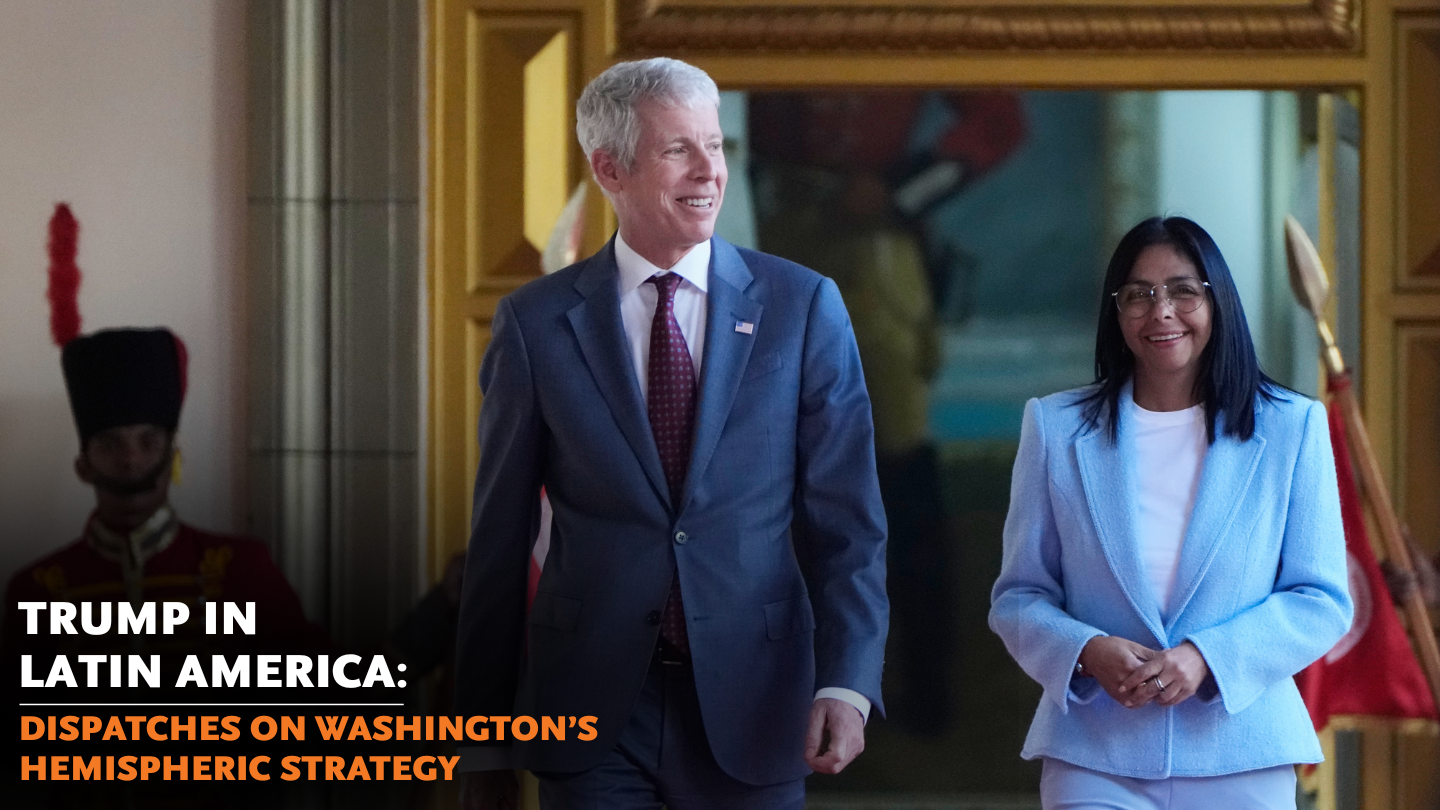Helping a Friend
Helping a Friend
Since President Alvaro Uribe took office in Colombia five years ago, the country has made progress in boosting security. AS/COA President and CEO Susan Segal writes that the time has come for U.S. Congress to approve a bilateral trade agreement as the "single most effective tool to help bring economic and political security to Colombia."
Our strategic relationship with Colombia is on the line. Even as Congress approved legislation establishing free trade with Peru, support for another ally in Latin America is wavering. Congress must push rhetoric aside and partner with Colombia in their efforts in establishing a secure and vibrant democracy.
Not too long ago, Colombia was engulfed in a horrific guerrilla conflict that disrupted every aspect of daily life. However, after over five years in office, President Uribe has transformed Colombia. One only needs to visit Colombia to see the difference. The country is safer, killings and kidnapping are down, refugees can return home, and a sense of normalcy has returned to daily life. But additional jobs and economic security are needed to fully embrace this remarkable transformation. For that, the U.S. must ratify the U.S.-Colombia Trade Promotion Agreement.
During my 25 years of private sector experience in Latin America and other emerging markets, I have been at the forefront of efforts to open doors for investment. Today, as I meet with business and political leaders from across the hemisphere, people agree that we must work harder to reduce poverty and create opportunities for entrepreneurship. And open markets offer the most effective mechanisms for generating such growth.
A trade deal would extend our current trade relationship from a set of revocable unilateral preferences to a relationship where U.S. industry enjoys the same benefits already granted to Colombia through the Andean Trade Promotion and Drug Eradication Act. With a permanent trade promotion agreement, the Colombian market would open on a reciprocal basis to U.S. goods, allowing 80 percent of U.S. consumer and industrial products to immediately enter Colombia duty-free. This helps workers and allows U.S. exporters to be more competitive at a time of increased challenges. In addition, labor provisions in the core text would require enforcement of domestic labor laws. It is time to level the playing field for ourselves while helping the people of Colombia.
U.S. Congressional leaders have noted concern about the level of violence in Colombia. I agree. Colombia has made remarkable progress, but work still needs to be done. Violence continues to choke the Colombian people and prevent full economic development. This is nothing less than an attack on democracy. However, it is easy to cast stones at the Uribe government for the perceived lack of attention toward union violence. But closer examination reveals a concerted effort to end it. The United States should be a partner, not an obstacle in this process.
The U.S.-Colombia Trade Promotion Agreement is our single most effective tool to help bring economic and political security to Colombia. Without this agreement and the investment security it provides, hundreds of thousands of Colombian jobs are in jeopardy of being lost. Each job opens an opportunity for a Colombian worker to enter the formal sector and to build individual economic prosperity—the alternative to narcotrafficking and the direct threat that poses to U.S. national security. Increased foreign investment and export market guarantees would further help to create the right economic conditions. Both can be achieved with passage of the Trade Promotion Agreement. We are at a critical point in hemispheric relations and a failure to act could impact U.S. interests for years to come.
Many critics are quick to dismiss the political and security imperatives of the agreement as being contradictory to the needs of the American worker. I couldn’t disagree more. The benefits of a U.S.-Colombia Trade Promotion Agreement are not limited to Colombia. Congressional ratification of the agreement, including the negotiated revisions on labor and environment, would promote trade in services, increase investment, allow fair dispute settlement, provide enforceable environmental standards, and strengthen labor protection. Therefore, a better and more stable climate is created in Colombia for U.S. goods and industry.
President Uribe has put the fate of his partnership agenda on the line with the hope that the U.S. would stand by him. Many in the region would like to see him fail as it would signify that the U.S. cannot be trusted as a partner that delivers for its friends. We cannot let that happen. Not only do our interests in the region hinge on the trade agreement’s passage, but so do those of one of our more important and faithful allies. It is time that Congress ratifies the trade agreement with Colombia.
Susan Segal is president and CEO of the Americas Society and the Council of the Americas.








